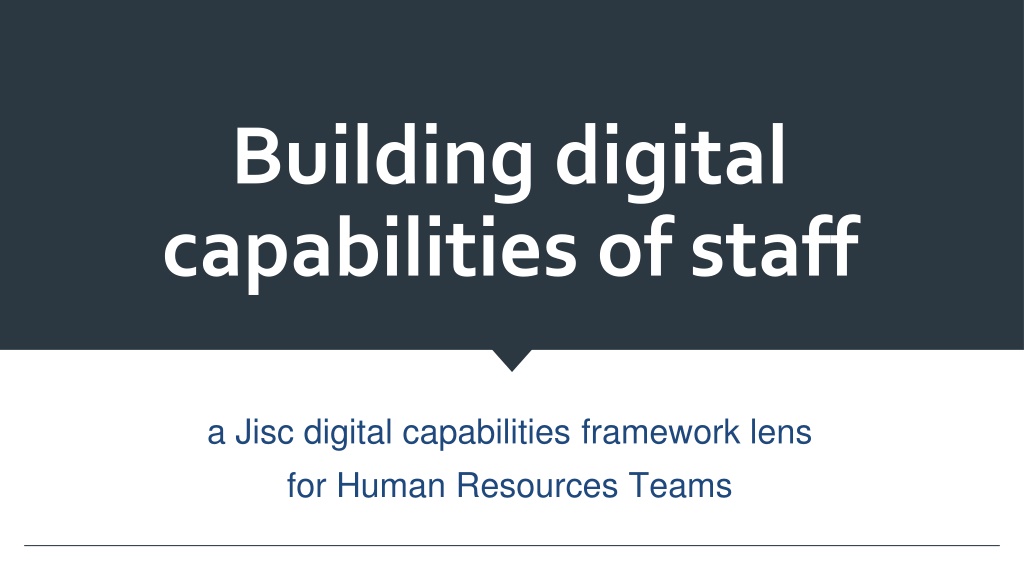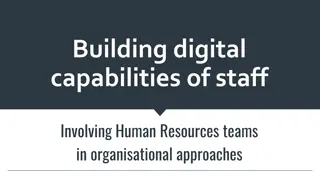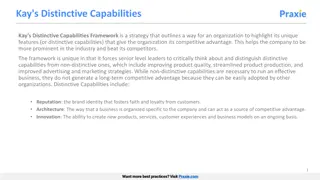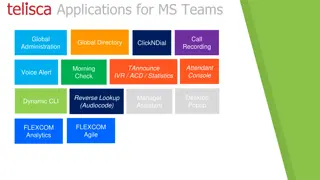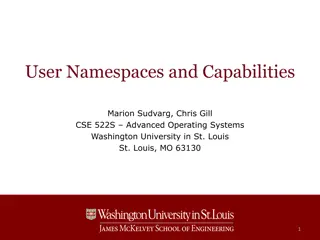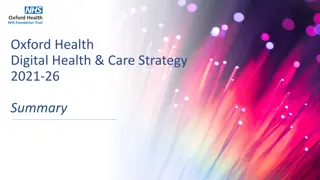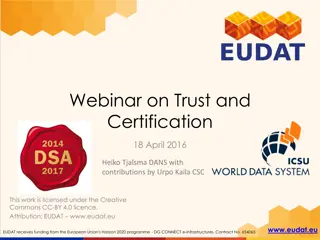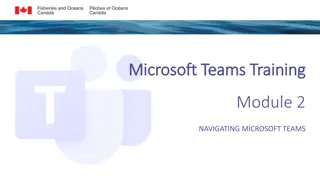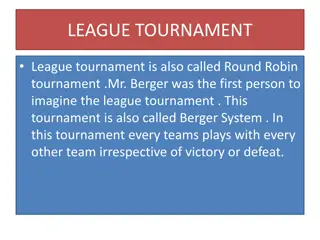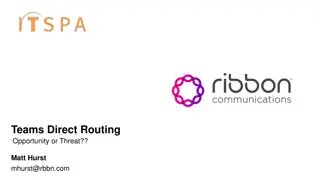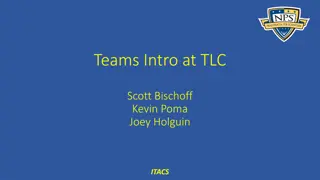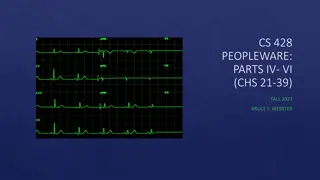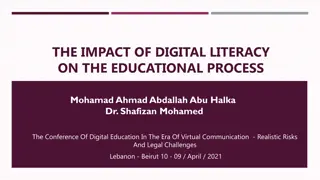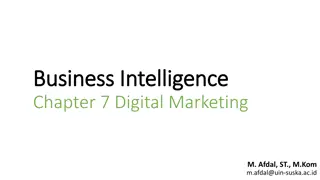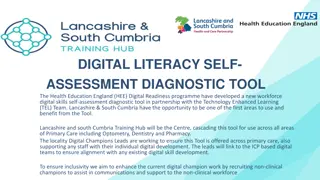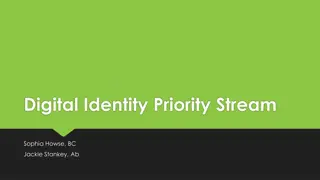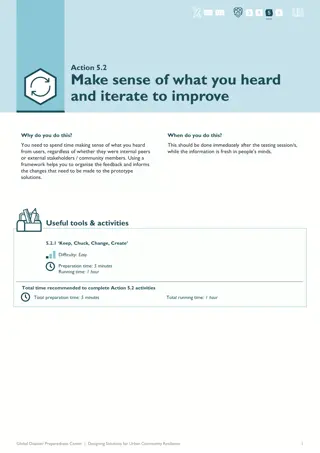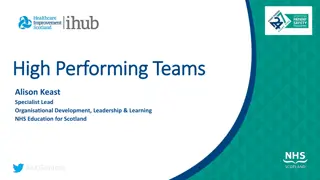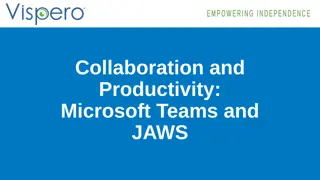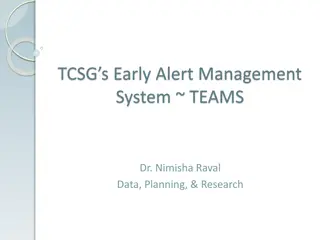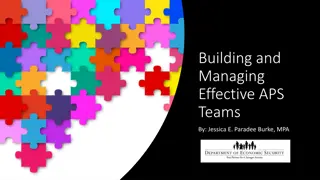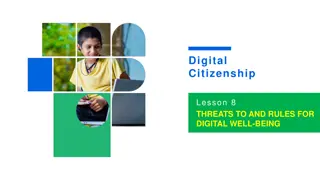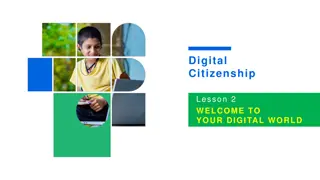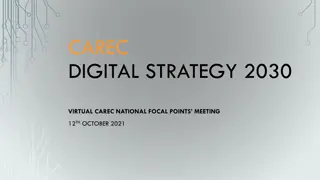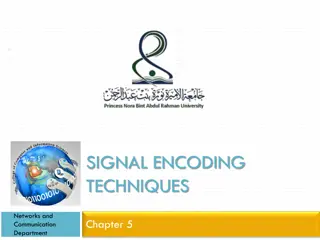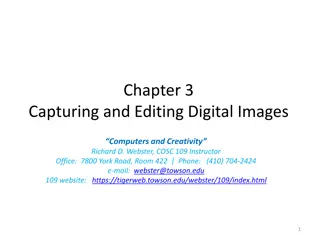Enhancing HR Teams' Digital Capabilities with Jisc Framework
This set of slides, created by Lou McGill with input from Abi Mawhirt, Head of People and Organisational Development at Dundee and Angus College, aims to assist HR teams in colleges and universities in building digital capabilities among staff. The slides provide a framework for aligning HR activities with the Jisc digital capabilities framework, highlighting areas where HR teams can influence and enhance staff digital skills. Feedback from HR teams will be used to update and refine the content.
Download Presentation

Please find below an Image/Link to download the presentation.
The content on the website is provided AS IS for your information and personal use only. It may not be sold, licensed, or shared on other websites without obtaining consent from the author. Download presentation by click this link. If you encounter any issues during the download, it is possible that the publisher has removed the file from their server.
E N D
Presentation Transcript
Building digital capabilities of staff a Jisc digital capabilities framework lens for Human Resources Teams
Purpose/Aim This set of slides has been produced for Jisc by Lou McGill with input from Abi Mawhirt Head of People and Organisational Development, Dundee and Angus College They are intended to be used by HR teams in colleges and universities. There are two sets of slides: 1. 2. Building digital capabilities of staff: involving Human resources teams in organisational approaches Building digital capabilities of staff: a Jisc digital capabilities framework lens for Human Resources Teams This set offers a view of HR activities through the Jisc digital capabilities framework. Each area of HR activities is mapped to the 6 key elements of the Digital capabilities framework and highlights where HR teams can impact on digital capabilities of staff (and to a lesser extent students). We have also highlighted those activities that relate to digital capabilities of staff in HR teams. We hope that HR teams would use the content to consider their activities, identify and build on strengths, as well as identify any gaps or areas where they could enhance their support of staff digital capabilities. These slides are a pilot version and we intend to update or revise them following feedback from HR teams in colleges and universities.
HR activities Input to organisational strategy, policy, operations and change management ICT proficiency Information, media and data literacy Digital creation, innovation & scholarship Job descriptions and person specifications Applications and interviews Recruitment and selection Systems and procedures Organisation-wide training Departmental training Systems and procedures Appraiser activities Identifying strengths and weaknesses Absence and capability monitoring and support CPD/training Identifying training needs by staff/manager In-house/External training and/or education ICT proficiency Information, media and data literacy Onboarding Digital learning and self development Digital creation, innovation & scholarship ICT proficiency Appraisal/performance review Digital learning and self development Learning and development Internal and external relationships Effective communication channels Conflict resolution/disciplinary procedures Digital communication, collaboration & participation Relationship management Physical health Mental health/Digital identity Specific health aspects e.g.digital identity, financial health, cyber security Digital identity and wellbeing Health and wellbeing
ICT proficiency and productivity Learning and development Recruitment and selection One-off training on internal ICT systems or productivity mechanisms Common levels of ICT proficiency on job descriptions and person specifications 04 External courses or training / Certified courses or training Mechanisms to identify/confirm capability levels during selection process Maintain records of training Calculate working hours and holiday entitlements Helping staff support learner ICT proficiency and productivity Review staffing profiles 01 03 Appraisal/performance review Appraisal process management and recording Onboarding Mechanisms for self reflection and recording training needs and accomplishments Identifying gaps in ICT proficiency during induction Identify emerging ICT proficiencies not in job description or person specification Identify any special technology requirements or 02 support needs Identify ways to improve digital productivity Provision of guidance and support on systems, processes and procedures Disciplinary and grievance procedures records management Identify ICT training needs Managing absence data and triggers Items in red have implications for ICT proficiencies of HR staff
Information, media and data literacy Learning and development One-off training on systems and processes in each area as appropriate Recruitment and selection Common levels of information, media and data literacy on job descriptions and person specifications 04 External courses or training / Certified courses or training Maintain records of training Specialist requirements of some job roles for each of the 3 literacies Helping staff support learner information, media or data literacies Mechanisms to identify/confirm capability levels and qualifications during selection 01 03 process Appraisal/performance review Data analysis and record management Mechanisms for self reflection and recording training needs and accomplishments in each area Onboarding Identifying gaps in information, media and data literacies during induction 02 Identify emerging information, media or data capabilities not in job description or person specification Provision of guidance and support on institutional policies and procedures Identify gaps in capabilities that impact on job performance Identify training needs for each of the three areas depending on job roles Data analysis and records management
Digital communication, collaboration and participation Relationship management 05 Recruitment and selection Support staff relationship with institution Evidence of effective digital communication and team working capabilities Fostering positive staff relationships with staff and students 01 04 Specialist requirements of some job roles for digital communication and collaboration Conflict resolution around digital communication mechanisms Mechanisms to identify/confirm capability levels and qualifications during selection process Negotiation activities (including external bodies) 02 03 Onboarding Learning and development Identifying gaps in digital communication and collaboration capabilities during induction In-house training for specific role needs Appraisal/performance review Maintain records of training Provision of guidance and support on institutional requirements Mechanisms for self reflection and recording training needs and accomplishments in each area Helping staff support learner capabilities in all three areas Identify support or training needs for each of the three areas depending on job roles Identify gaps in capabilities that impact on job performance Data analysis and records management
Digital learning and development Digital identity and wellbeing Appraisal/performance review Effectively using institutional and external mechanisms to build and maintain positive digital identities and recording professional achievements Mechanisms for self reflection and recording training needs and accomplishments to enhance their job role (e.g. Jisc discovery tool) 04 Supporting students to develop professional digital identities Identify gaps in digital capabilities that impact on job performance Maintaining safe and nurturing digital learning environments and spaces Mechanisms to record learning and development activities on institutional systems or professional portfolios 01 03 Procedures and systems to maintain and protect people engaging in digital learning Data analysis and records management Relationship management Learning and development In-house learning and development Participating in digital learning activities 02 opportunities Supporting student participation in digital learning activities External courses and training, including those leading to certification or professional qualifications in digital learning Conflict management during digital learning activities Enhance staff capabilities to support students digital learning and development
Digital creation, innovation and scholarship Learning and development In-house support and courses or training to encourage creative problem solving Recruitment and selection 04 Identify importance of creativity, innovation and problem solving on job descriptions and person specifications Certified courses or training to enhance research skills Maintain records of training Identify evidence of digital scholarship during selection process Helping staff support learner creativity, innovation and problem solving 01 03 Mechanisms to identify/confirm capability levels during selection process Appraisal/performance review Onboarding Identifying gaps in creativity, innovation and problem solving during induction 02 Mechanisms for self reflection and recording training needs and accomplishments in each area Identify training or support needs depending on job roles Identify gaps in capabilities that impact on job performance Highlight examples of good practice within the organisation
Digital identity and wellbeing Health and wellbeing Onboarding Offer guidance and support on digital wellbeing and for specific areas of this such as financial wellbeing, e-safety, cyber security, bullying 05 Emphasise importance of digital wellbeing during induction Ensuring that staff and students with disabilities are not disadvantaged by technologies Highlight institutional mechanisms and own responsibility through guidance and support 01 04 materials Mechanisms to deal with staff or students experiencing mental health problems due to digital interactions Ergonomic checks to ensure physical health when participating in digital activities Appraisal/performance review Monitoring absence data, triggers and supporting staff 02 03 Relationship management Mechanisms for identifying digital wellbeing of individuals Maintaining positive digital communication activities Consider digital identities and identify actions to enhance and maintain them if appropriate for Learning and development their job role Conflict management and mental health awareness Adding learning and development activities to digital professional portfolios Consider digital wellbeing in relation to absence and capability management and support Supporting the development of positive and safe digital activities Supporting students to develop professional digital identities
